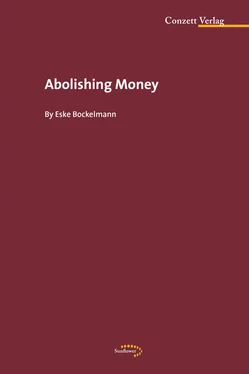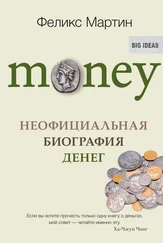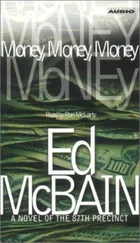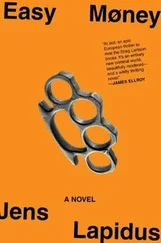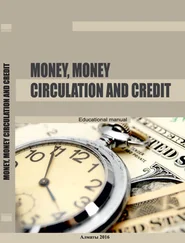There is no doubt today we are living in a notably globalized, money-mediated society—even if there is growing doubt about how it functions . Even the most unsophisticated official voices—if I recall correctly, under the patronage of a president of the Federal Republic of Germany—felt the need not long ago to launch an advertising campaign advocating the “Volunteer Model.” This notion was not only directed at sports clubs. No, we would be altogether depending on volunteerism. Voluntary work has to become the new basis of “our” society. Away from calculated self-interest towards a willingness to show solidarity with their fellow man if they do not want their society to be defeated by its famous “challenges.” This idea of voluntary work i.e. without remuneration is to be developed into a new structural form of labor because payment for work that needs doing in every corner of society is causing insurmountable difficulties. Yes, there is much to be done, but who should pay for it? So, citizens, put an end to social coldness and warm-heartedly forego payment.
Well, I’m still thinking along similar lines. Whatever I do to make money at present, I would gladly do voluntarily, without pay, provided that my food is given to me voluntarily, that I’m allowed to live in my apartment voluntarily, and that somebody voluntarily helps me to repair my bicycle.
That I currently insist on payment for my work doesn’t mean I have any great appetite for money or that I have to first see the money (“ Money, Money, Money! ”) before I then properly spend it. No, my pecuniary needs merely reflect the well-known necessity that I encounter everywhere, namely, I only receive the resources I need to conduct my life in the form of money , which everyone around me requires for payment, and so I too must have money available to acquire whatever I need. And why does everyone insist on using money ? Because they must, since everyone, myself included, insists on money. And so it goes: an endless cycle around the globe.
It is clear then that the coercive power money has over everyone, whether one wants it or not, derives from its universality, it can only be abolished universally . Implicitly, this is what the Volunteer Model project, in all its innocence, proposed by wanting to make unpaid labor the basis of our society. But be careful, Mr. President, of this quintessentially Communist idea! If people were to perform their tasks or produce only the things they deemed essential or desirable for their lives, and simply because these things are essential and desirable and not because the universal coercion of money has intervened and wants to be served—and this is of course the idea—one could speak of a liberated humanity! But let’s not get carried away: suffice it to say this is the good materialistic thought of a well-contented life.
But that was not your intention, Mr. President, I am sure, and you certainly didn’t want to address the related issue of private property. Quite the opposite, you wanted to preserve society as it is . It’s just that our money-based society has obviously run into so much trouble that it requires such an inherently self-contradicting remedy. Volunteerism bears a vision you really wanted to shield us from. It implies a fundamentally different society, one that runs without money. Oddly, no one seems to reach this conclusion except, like Mr. President, inadvertently, without quite realizing it. Nobody can ignore the obvious, radical and widespread difficulties that money inflicts on itself and on others: from the unemployment that we now accept as matter of fact, all the way to the grand global financial crisis that required tremendous efforts from the world’s mightiest countries to save our treasured financial system from imminent collapse. And there are certainly no taboos against sharply criticizing bankers and traders, the World Bank and the International Monetary Fund, the locusts and global players , the feckless politicians and regulators, immoral and incompetent managers, fair versus free trade, good versus bad taxes, free versus managed markets, too much debt versus too little credit. But this criticism and the general dissatisfaction with the financial system stop short of questioning how it might work without money. Instead, they stubbornly and without exception insist on continuing with money, just—the devil only knows how—doing it better .
Конец ознакомительного фрагмента.
Текст предоставлен ООО «ЛитРес».
Прочитайте эту книгу целиком, купив полную легальную версию на ЛитРес.
Безопасно оплатить книгу можно банковской картой Visa, MasterCard, Maestro, со счета мобильного телефона, с платежного терминала, в салоне МТС или Связной, через PayPal, WebMoney, Яндекс.Деньги, QIWI Кошелек, бонусными картами или другим удобным Вам способом.
